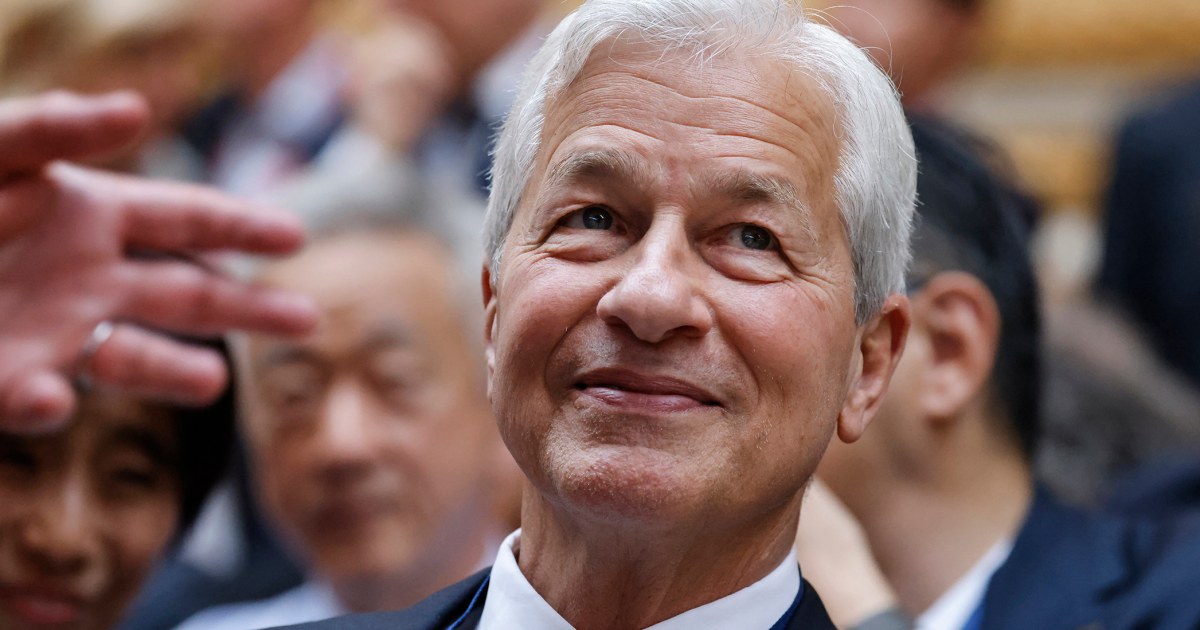Corporate Resistance: How Businesses Are Challenging Trump’s Anti-DEI Agenda
In recent years, the conversation surrounding diversity, equity, and inclusion (DEI) has gained significant traction across various sectors. As the nation grapples with the implications of social justice movements, many businesses are finding themselves at a crossroads. Amidst former President Donald Trump’s anti-DEI initiatives, an increasing number of corporations are standing firm against this pressure, resolutely advocating for inclusive practices within their organizations. This article delves into the motivations behind this corporate resistance and examines the potential implications for corporate culture in America.
The Landscape of DEI in Corporate America
To fully understand the corporate pushback against Trump’s anti-DEI agenda, we must first examine the current landscape of DEI initiatives in America. Over the past decade, many companies have embraced DEI not merely as a set of policies but as integral components of their corporate identity. The aim has been to create workplaces that reflect the diverse society in which we live, ensuring that every employee feels valued and included.
According to a 2020 McKinsey report, companies in the top quartile for gender diversity on executive teams were 25% more likely to experience above-average profitability compared to those in the bottom quartile. This data underscores the belief that diversity can drive innovation, enhance decision-making, and improve company performance.
Motivations Behind Corporate Resistance
The resistance from businesses against Trump’s anti-DEI agenda stems from several key motivations:
- Commitment to Values: Many companies have embedded values of diversity and inclusion into their mission statements. These values resonate deeply with their brand identities, and any deviation could lead to alienation of employees and customers alike.
- Talent Acquisition and Retention: In a competitive job market, attracting and retaining top talent is paramount. Research indicates that diverse workplaces are more attractive to job seekers, particularly among younger generations who prioritize social justice.
- Consumer Expectations: Today’s consumers are increasingly conscious of the social responsibilities of the brands they support. Companies that actively promote DEI are often favored by consumers, enhancing brand loyalty and market share.
- Legal and Financial Repercussions: With an increase in shareholder activism, businesses are aware that failing to prioritize DEI can lead to backlash and financial penalties. Investors are increasingly scrutinizing corporate social responsibility, making DEI a vital component of long-term strategy.
Case Studies of Corporate Resistance
Several high-profile corporations have openly challenged Trump’s anti-DEI initiatives, demonstrating their commitment to inclusive practices:
- Disney: The Walt Disney Company has been a vocal advocate for diversity and inclusion, with initiatives aimed at increasing representation both in front of and behind the camera. Following backlash from Trump’s comments and policies, Disney reaffirmed its commitment to DEI, emphasizing their belief that diverse storytelling enriches the overall narrative.
- Google: In response to pressures from the anti-DEI movement, Google has implemented various programs aimed at fostering a more inclusive workplace. The tech giant has publicly supported Black Lives Matter and has invested millions in initiatives to support underrepresented communities.
- Starbucks: Starbucks has taken a strong stand against racial discrimination, pledging to create a more inclusive environment. After facing scrutiny over its hiring practices, the company revamped its DEI strategy, which included training programs and community engagement efforts.
Challenges Faced by Corporations
Despite the growing momentum for DEI, businesses face numerous challenges in their efforts to resist Trump’s anti-DEI agenda. Some of these challenges include:
- Political Backlash: Companies that take a stand on social issues often risk alienating certain customer segments and facing political retaliation. This backlash can manifest in boycotts or negative publicity.
- Implementation Difficulties: Transitioning from traditional corporate structures to inclusive ones requires comprehensive changes in policy, culture, and mindset. Many organizations struggle with effectively implementing DEI initiatives.
- Employee Resistance: Some employees may not fully understand or agree with DEI initiatives, leading to internal conflict. Education and open dialogue are crucial to overcoming these hurdles.
The Role of Leadership in Promoting DEI
Effective leadership is pivotal in fostering a culture of diversity and inclusion. Leaders must not only advocate for DEI but also model the behaviors they wish to see throughout their organizations. Here are some strategies that leaders can employ:
- Communicate Transparently: Regularly share progress on DEI initiatives and solicit feedback from employees. Transparency builds trust and encourages engagement.
- Invest in Training: Provide comprehensive training to employees at all levels about the importance of DEI. This can include workshops, seminars, and mentorship programs.
- Hold Accountability: Set measurable goals for diversity and inclusion, and hold leadership accountable for progress. This not only demonstrates commitment but also fosters a sense of responsibility across the organization.
The Future of Corporate Culture in America
As businesses challenge Trump’s anti-DEI agenda, the implications for corporate culture in America could be profound. Companies that prioritize diversity, equity, and inclusion are likely to lead the charge in redefining workplace norms. Here are some potential outcomes:
- Enhanced Innovation: A diverse workforce brings varying perspectives, which can lead to more innovative solutions and products.
- Increased Employee Satisfaction: Inclusive workplaces are associated with higher levels of employee morale and productivity, resulting in lower turnover rates.
- Social Responsibility: Companies that embrace DEI are likely to become more engaged in community issues, contributing to overall societal progress.
Conclusion
The corporate resistance against Trump’s anti-DEI agenda exemplifies a broader commitment to fostering inclusive environments. As businesses navigate the complexities of social responsibility, they are not merely reacting to political pressures but are instead actively shaping a more equitable future. The journey towards comprehensive DEI is ongoing, and with steadfast commitment, businesses can lead the way in creating workplaces that truly reflect the diverse society we inhabit. By standing firm in their beliefs, these corporations not only enhance their brand identities but also contribute to a larger societal movement towards equity and inclusion.
See more Business Focus Insider Team

